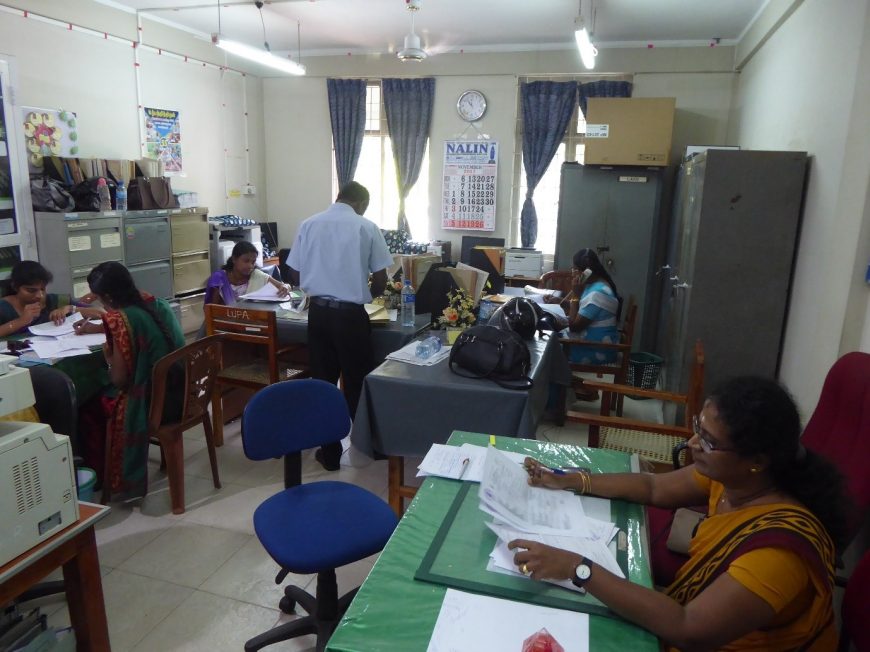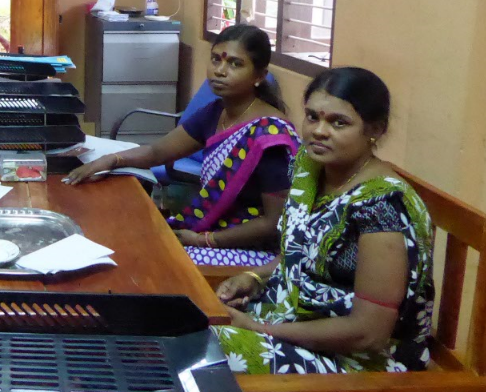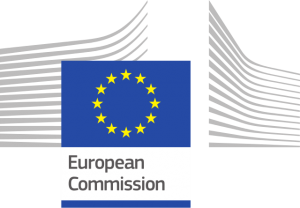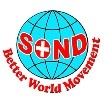Mobile clinics through the eyes of Nishan, Sarithna, Jeya and Husejin*, resource persons for ACTED’s clinics
In areas heavily affected by the former conflict that afflicted Sri Lanka for 25 years, such as Jaffna District, essentials documents were often lost or destroyed. These can include passports, ID cards, and marriage, or even birth and death certificates.
Yet, “as the most vulnerable people from rural areas may be somewhat intimidated by the complexity of paperwork or unaware of documentation processes, they rarely come to the documentation or registration offices to apply for these documents”, Sarithna explains. That is why Nishan, Jeya and Sarithna, eager to help people who lost everything during the conflict, saw these clinics as an opportunity for them to reach out to the communities. They immediately signed up to serve as resource persons for the mobile documentation clinics.
Nishan, Jeya, Sarithna and Husejin are all part of an EU-funded project that begun in 2015. Since then, ACTED and its partners SOND and the Bar Association of Sri Lanka have strived to strengthen fundamental rights and freedoms in the East and North of Sri Lanka. As part of this project, mobile clinics are organised in remote villages of Jaffna and Batticaloa Districts. During legal clinics, lawyers provide free legal advice to communities, while documentation clinics are designed for government officials to help citizens obtain official documentation.

Nishan, Sarithna, Jeya and Husejin chose to join the project during the information sessions organized to introduce it to local organisations and community members. After attending these sessions, Nishan, Sarithna, Jeya and Husejin decided to get involved in the project, and particularly in the mobile clinics. They believed these clinics would have a great impact on the lives of vulnerable people.
When they are not helping at the clinics, Nishan and Sarithna work as documentation officers, while Jeya works in the registration office. As for Husejin, he is a lawyer working with the Legal Aid Commission.
Missing certificates for birth, marriage, and death are the most common documentation issue. Yet, these are essential: without a birth certificate, children cannot have proper access to education and people cannot get proper ID papers, nor marriage certificates; without a marriage certificate, a couple cannot be authorised to file for divorce, and the father can refuse to recognise any children from the union; and finally without a death certificate, relatives cannot receive insurance benefits.

Thanks to dedicated persons such as Nishan, Sarithna and Jeya, community members receive support to obtain documentation., with which they will then be able to claim their rights and access social benefits and services that they are entitled to.
In his authority as a lawyer, Husejin provides legal support to people coming to ACTED’s mobile legal clinics. “In the Northern and Eastern Provinces, people from rural communities are often unaware of their rights and need support in navigating legal procedures to solve their issues”, Husejin says to explain what motivated him to take part in the legal clinics.
One example of a legal case involved a farmer who came for advice during the mobile legal clinics. Without any prior notice, a policeman came to seize his tractor, which was essential for his livelihood as without it he could notplough or cultivate his field. The farmer did not understand the reason why, as the policeman only spoke Sinhala while he speaks Tamil. Husejin went to great lengths to help this farmer prove he was the rightful owner, supporting him with the documentation and translation, until he was able to get his tractor and source of livelihood back.

When asked if they would like to continue working for the communities, Nishan and Sarithna did not think twice. “We want to continue to help people to get their documents and support them in rebuilding their lives”, Sarithna says. Jeya is convinced that much remains to be done to help more vulnerable people to get back essential documentation: “Many rural dwellers do not know the value of these documents. We need to reach out to them”, says Jeya.
I want to continue and help more people. More clinics are necessary, not only in the North and East but in all of Sri Lanka. In this way, more people would be able to receive legal help and claim their rights.
In the future, Husejin hopes that mobile clinics, which are implemented once a year within the framework of ACTED’s project, can be conducted every three or six months.
Do you want to know more about ACTED in Sri Lanka? Follow us on social media! We’re on Facebook and Twitter.
This project has been made possible thanks to the support of the European Commission:

We would also like to thank our partners who contribute to the implementation of the project:

![]()
__________________
*All names have been changed throughout this case study to ensure confidentiality
** The DS division is part of the decentralised administrative structure of the government of Sri Lanka:
- Central Government
- District
- Division (DS)
- Grama Niladhari (GN)
- Community